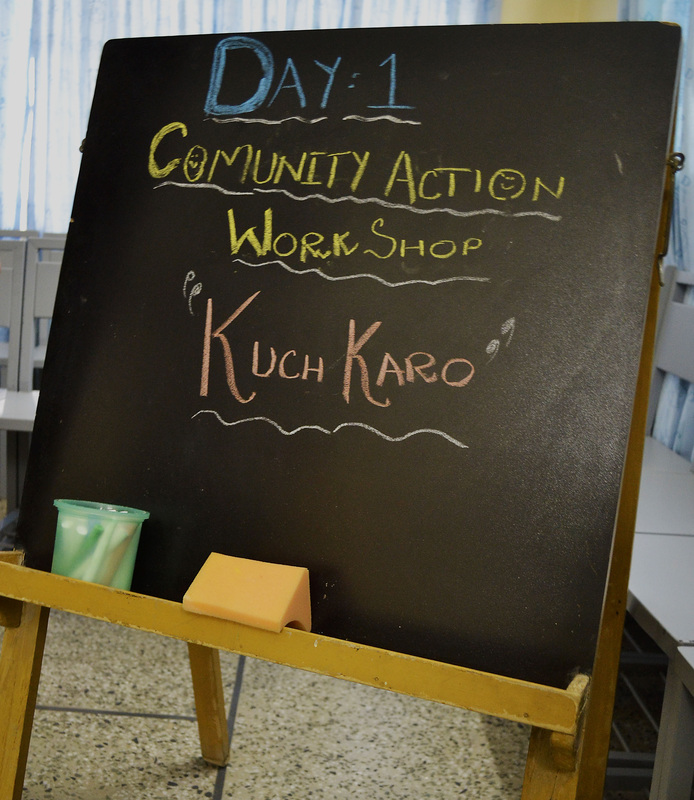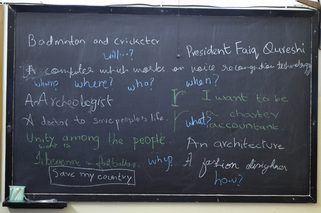Carpeted with chattais and with walls lined with chart paper, chipboard, and both blackboards and their fairer cousins, the Idea Room is where the magic happens. "This will be their space," Maliha had told me earlier. With most surfaces in the room pen-friendly, the concept of this space is to allow the kids to write, visualize and then collectively appreciate each others ideas.
At around 10:15, they arrived. I had (almost) imagined the earth shaking slightly and the door frames trembling to signal their coming, but the 16 students who walk in are super well-mannered, docile and, of course, at least as nervous as us (which was quite a bit).
As an ice-breaker to kickstart the workshop, Maliha asked the group to share something "cool and weird" about themselves. (For instance, Maliha has the uncanny ability to recognize fonts, be very picky about them, and, thus, become offended by a piece of text regardless of what it says.) This attempt was not very successful. It was probably the kids' nerves that made them quite unresponsive.
Things, however, began to look better when the group was asked what they thought they would like to be when they grew up and write their thoughts on a blackboard.
From here, the discussion meandered towards Pakistan. When asked, "Who wants to save their country?" everyone's hand shot up. The group then tabulated a preliminary list of problems in the country, with each child contributing one problem to the list. They then tried to band similar problems together under headings and link with problems brought up earlier to create a sense of organization and interconnectedness.
When prompted to contribute, Alishbah softly said, "I do not want to save anything because I don't think anything can be saved." The rest of the group, however, did not share her jadedness. The impressively aware participants contributed problem after problem until yet another board was full. These kids wanted to eradicate corruption, street crime, target killing, pollution, deforestation and loadshedding. When pressed for possible solutions, a number of them even had something to offer. By the end of the discussion, Alishbah decided that there was something to save after all.
I am sure the kids left the Idea Room feeling delightfully flustered. One question Maliha repeatedly asked everyone was: why? Why, I've realized, is a question that isn't asked enough of us, not in our schools, not in our workplaces. It is, therefore, frustrating to be asked why you said something or why you feel or think the way you do because, well, isn't it obvious? But it isn't.
-Asad


 RSS Feed
RSS Feed